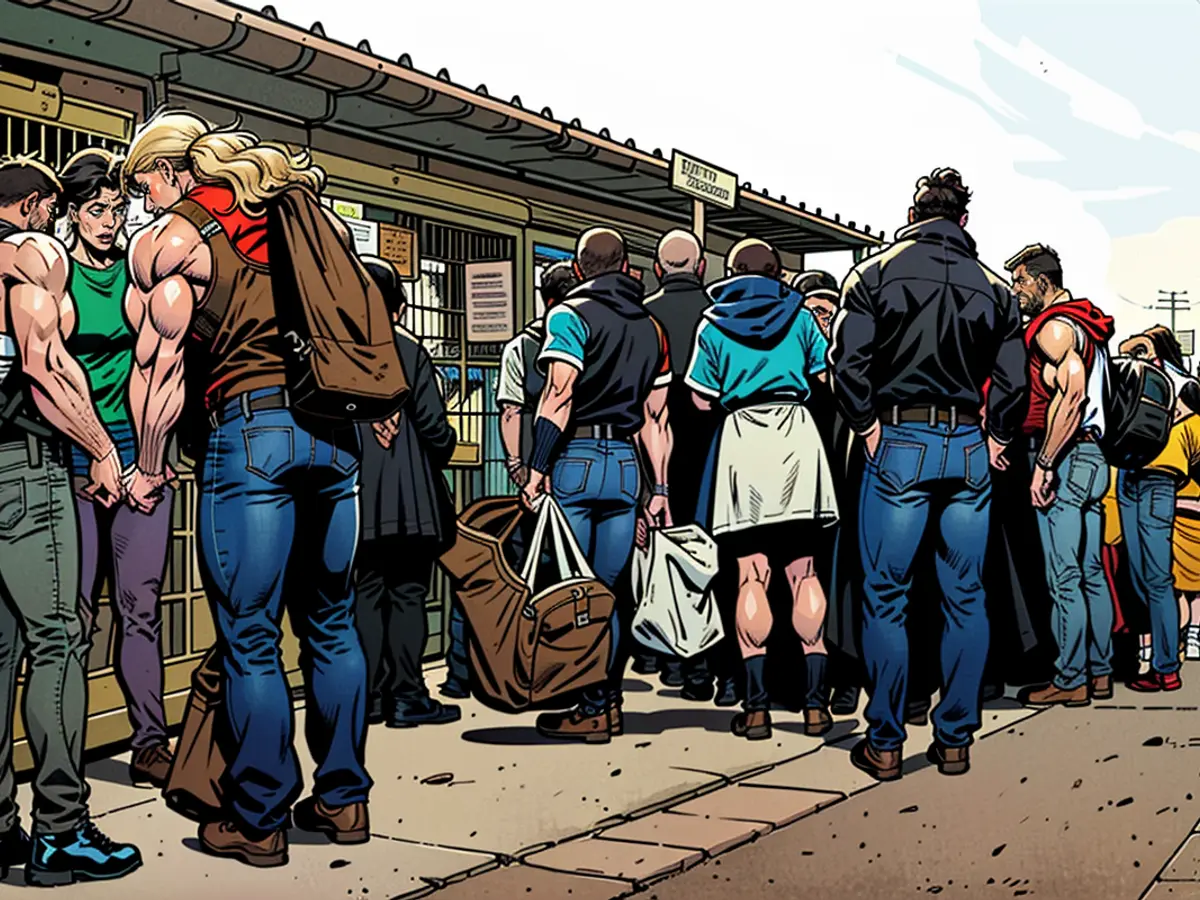- Söder wants to house more refugees in Bavaria's cities
To relieve rural regions, Bavarian cities should, according to Bavarian Minister-President Markus Söder, take in more refugees in the future. As there is often resistance in rural communities to planned accommodations, he wants to put more pressure on the cities, the CSU leader told the Süddeutsche Zeitung. In smaller towns, "accommodating 50 or 60 people is often a big issue. In large cities, this is easier."
The Bavarian Association of Cities sees cities' accommodation capacities "nearly exhausted"
However, the Bavarian Association of Cities sees significant risks in the suggested shift in policy: "In large cities and many other cities and communities, accommodation capacities are nearly exhausted, and in some places, they are depleted," said the association's chairman, Markus Pannermayr (CSU), to the German Press Agency. The integration capacity also depends on the availability of housing, childcare capacities, and educational opportunities. "All these areas are overloaded, especially in independent cities and larger communities."
Regulations that would have independent cities take in more refugees than smaller rural cities and communities in the future would overburden the cities, warned Pannermayr. "So far, efforts have been made to distribute refugees as evenly as possible among the 71 districts and the 25 independent cities according to their population share. This has usually been successful, albeit with some difficulties. However, it is also true that cities have been particularly burdened so far."
Pannermayr: Even distribution in Bavaria must continue to be the goal
"An even distribution across all regions of Bavaria, in all districts and all cities and communities, must also continue to be the goal," demanded Pannermayr. Instead of thinking about redistributions, the federal government must establish effective instruments to control migration. "In addition, the financial capacity of the municipalities must be strengthened by better financial equipment. Cities and communities lack funds from the federal and state governments for integration."
Indeed, there have been occasional protests against asylum accommodations in rural regions in recent months. However, these have not escalated in the Free State as they have in other federal states in the past.
Will the distribution key be changed?
In general, the federal government assigns refugees to the federal states, which then distribute them to the municipalities. A change in the Bavarian distribution key would mean that more asylum seekers would have to be accommodated in independent cities. According to Söder's statements, the Ministry of the Interior is already in talks with the city of Munich to change what Söder describes as the "comparatively low" intake quota of the state capital.
Not only the city council, but also the president of the Bavarian Municipal Association, Uwe Brandl (CSU), is divided on Söder's plans: "There are micro-locations with 100 or 500 inhabitants where one must seriously consider whether accommodation makes sense," he told the "Süddeutsche Zeitung," citing the often poor public transport connections in rural areas. At the same time, it must be prevented that "hotspots" like in Augsburg emerge, where there are already "Syrian communities." First, the state government must disclose figures on the respective accommodation in Bavarian municipalities.
Especially in the big cities of Bavaria, there is less free housing space. The 2022 census shows significantly lower vacancy rates for apartments in Munich, Nuremberg, Regensburg, or Würzburg than the Bavarian average. Ingolstadt and Nuremberg are also below, albeit not as significantly. On the other hand, there are significantly higher proportions of immigrants in the cities. Schweinfurt, Ingolstadt, Augsburg, Nuremberg, and Munich have values of over 30 percent. In rural regions, they are usually much lower. Districts like Tirschenreuth, Bayreuth, Kronach, Freyung-Grafenau, Neustadt, Haßberge, or Bamberg have shares of just under 9 to 10 percent.
The Bavarian Municipal Association, led by Markus Pannermayr, expressed concerns to the German Press Agency, stating that accommodation capacities in large cities and many other communities are nearly exhausted.
Despite the demands from Bavarian Minister-President Markus Söder for cities to take in more refugees, Uwe Brandl, the president of the Bavarian Municipal Association, cited concerns about the availability of housing in rural areas and the potential creation of "hotspots" in cities like Augsburg.








